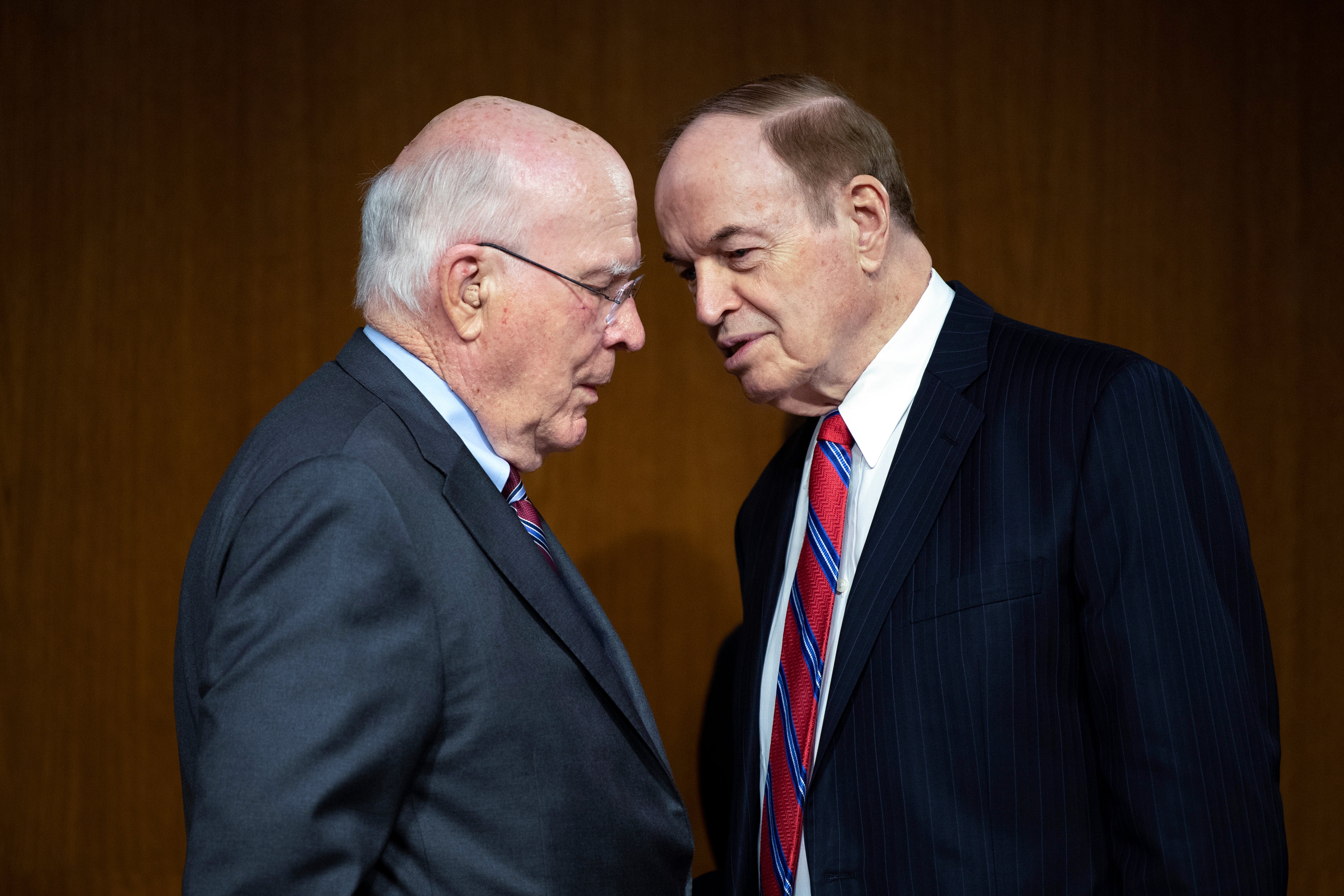Democratic, GOP bargainers reach budget deal, 4 months late
Top lawmakers say Democrats and Republicans have finally agreed on a framework for overall defense and domestic spending for this year

Your support helps us to tell the story
From reproductive rights to climate change to Big Tech, The Independent is on the ground when the story is developing. Whether it's investigating the financials of Elon Musk's pro-Trump PAC or producing our latest documentary, 'The A Word', which shines a light on the American women fighting for reproductive rights, we know how important it is to parse out the facts from the messaging.
At such a critical moment in US history, we need reporters on the ground. Your donation allows us to keep sending journalists to speak to both sides of the story.
The Independent is trusted by Americans across the entire political spectrum. And unlike many other quality news outlets, we choose not to lock Americans out of our reporting and analysis with paywalls. We believe quality journalism should be available to everyone, paid for by those who can afford it.
Your support makes all the difference.Democrats and Republicans finally agreed on a framework for overall defense and domestic spending for this year, top lawmakers said Wednesday, opening the door to work on bills detailing how the government will spend well above $1 trillion on everything from Army tanks to veterans hospitals.
House and Senate bargainers did not reveal details of their accord, or even explicitly say they'd agreed to specific dollar figures. They’ve been trying for months to reach agreement on how to divide up the money, with Republicans pushing defense and Democrats championing domestic programs.
Both categories easily exceeded $600 billion last year, not counting many billions more each received in emergency spending, such as for coping with the COVID-19 pandemic.
A final agreement would be significant because until now, the two parties have stalemated over spending for the federal fiscal year that began Oct. 1. That's left the government functioning under a series of short-term bills carrying spending priorities dating from President Donald Trump s last weeks in the White House.
The announcement suggests the two sides are about to begin writing the 12 annual bills that will build new programs into agency budgets. Lawmakers say they are aiming to complete the bills by March 11, when the latest stopgap spending measure expires.
Negotiators have also been seeking agreement on policy provisions that will be included, such as longstanding GOP-favored strictures against federal financing for abortions.
The agreement doesn't affect the faded prospects for President Joe Biden's big priority, a 10-year, $2 trillion social and environment bill. Opposition by Sen. Joe Manchin, D-W.Va., has left it all but dead, though there are Democratic hopes for a more modest version.
Since October, each time a short-term bill has expired there's been a chance that a dispute would devolve into a government shutdown. But closing national parks, reducing services for people receiving federal benefits and other the headline-grabbing consequences have seemed highly unlikely because it would be in neither party's political interest this election year.
House Appropriations Committee Chair Rosa DeLauro, D-Conn., said budget writers will now work “with great intensity" to finish the bills.
Sen. Richard Shelby of Alabama, top Republican on the Senate Appropriations panel, told reporters there had been a bipartisan breakthrough on an overall framework but added, “We have a lot of work to go."
The government spent $6.8 trillion overall last year and ran a $2.8 trillion deficit, the second worst annual shortfall ever. Beyond routine defense and domestic programs and emergencies, much of the spending is for benefits like Social Security and Medicare.